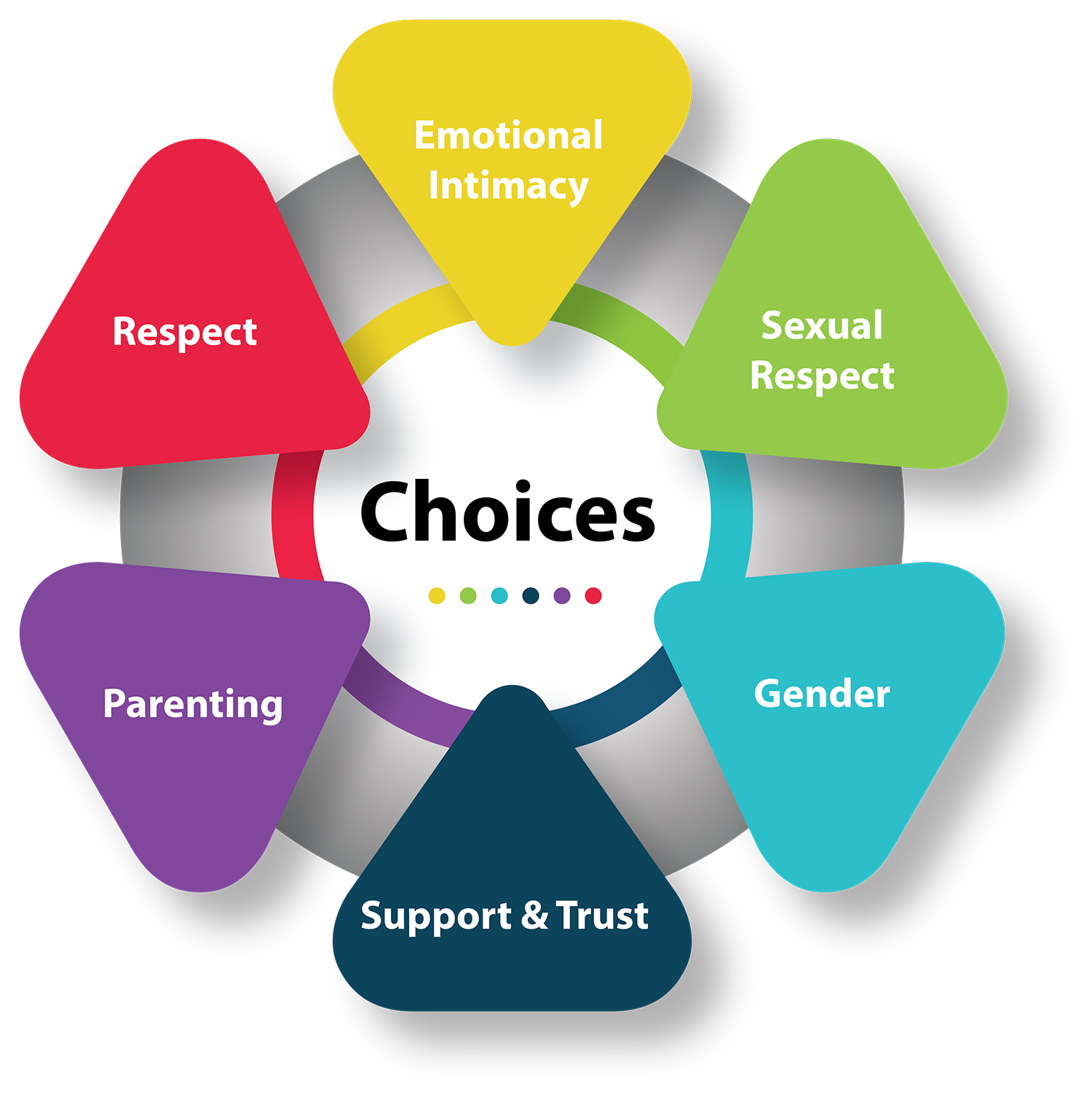
The Choices Programme is run both as a fixed and as a rolling programme to allow men to access the programme at three intervals.

The modules are on particular themes and help participants to:
- Learn about the effects and consequences of domestic violence on their partner and family.
- Participate in group sessions with other individuals who have behaved in a similar way.
- Talk openly about their behaviour and the people affected by it.
- Identify the beliefs and attitudes which underpin violence and abuse.
- Cope with their behaviour and feelings in difficult situations.
- Learn how to react without being abusive.
- Learn about respect and responsible parenting.
- Learn to understand and recognise the need to change their behaviour.
In areas where it is not possible to run a group programme, individual sessions may be offered.
